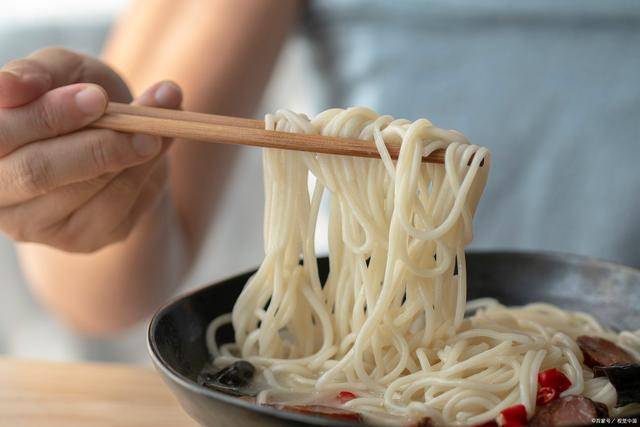In daily life, patients with high blood sugar often face the dilemma of food choice, worrying that certain foods may cause a spike in blood sugar. Noodles, as a common food, have become a concern for patients about whether they will cause blood sugar spikes. This article will explore the impact of noodles on blood sugar and six types of foods that doctors warn patients to be cautious of, to help high blood sugar patients better manage their diet.
1. Relationship Between Noodles and Blood Sugar
Noodles are a staple food, mainly composed of carbohydrates. When carbohydrates enter the body, they are digested and broken down into glucose, thereby affecting blood sugar levels. Therefore, for patients with high blood sugar, consuming too many noodles may indeed raise blood sugar levels. However, if eaten in moderation and combined with a reasonable diet plan, noodles can also be a healthy food choice.
2. Six Types of Foods High Blood Sugar Patients Should Be Cautious of:
High-sugar foods: High-sugar foods such as candy, sweet drinks, etc., contain large amounts of sugar, excessive intake can cause a sharp increase in blood sugar. Prolonged excessive intake of high-sugar foods may lead to insulin resistance, obesity, and worsen symptoms of high blood sugar. High-starch foods: High-starch foods such as potato chips, potatoes, etc., contain high levels of starch, which when digested, convert to glucose, potentially causing high blood sugar. Therefore, high blood sugar patients should consume high-starch foods in moderation. High-fat foods: High-fat foods such as fried chicken, French fries, not only may lead to obesity but also may affect insulin sensitivity, subsequently affecting blood sugar control. In addition, high-fat foods may also increase the risk of cardiovascular diseases. High-salt foods: High-salt foods such as pickles, salted fish, etc., may cause high blood pressure and cardiovascular diseases, which could also affect blood sugar control. Therefore, high blood sugar patients should limit their intake of high-salt foods. Smoking and alcohol: Smoking and excessive alcohol consumption are harmful to health, including their effects on blood sugar. Smoking may lower insulin sensitivity, while alcohol may interfere with glucose metabolism. Therefore, high blood sugar patients should avoid smoking and excessive alcohol consumption. Caffeine: Caffeine is a stimulant, excessive intake may accelerate heart rate and raise blood pressure. For some high blood sugar patients, caffeine may affect their blood sugar levels, hence the need to control intake.
3. Dietary Recommendations:
Control total caloric intake: Patients with high blood sugar should follow the recommended caloric intake advised by their doctor, distribute meals reasonably, and avoid overeating. Balanced nutrition: Patients should ensure adequate intake of proteins, fats, carbohydrates, vitamins, minerals, and control fat and sugar intake in moderation. Increase dietary fiber intake: Dietary fiber helps lower blood sugar and increase satiety. Patients can eat more foods rich in dietary fiber, such as vegetables, fruits, and whole grains. Moderate exercise: Exercise helps increase the body’s sensitivity to insulin, improve physical fitness, and control blood sugar. Patients can choose appropriate forms of exercise according to their own situation, such as walking, jogging, swimming, etc. Regular sleep patterns: Maintaining adequate sleep and a regular routine helps regulate the endocrine system and stabilize blood sugar levels. Patients should avoid staying up late and excessive fatigue. Regular monitoring of blood sugar: Regular monitoring of blood sugar helps understand one’s own blood sugar levels and adjust diet and exercise plans in a timely manner. Patients should follow the monitoring frequency and time points advised by their doctor. Psychological adjustment: Maintaining a positive and optimistic attitude helps regulate the endocrine system and stabilize blood sugar levels. Patients can adopt psychological adjustment methods like relaxation training, meditation, etc., to relieve stress and anxiety. Adherence to treatment: In addition to dietary adjustments, patients with high blood sugar should adhere to the treatment plan prescribed by their doctor, taking medication or insulin injections on time, etc. Individualized treatment under the guidance of a doctor is an important measure in controlling high blood sugar.
In conclusion, noodles are not the only blood sugar-raising food. Patients with high blood sugar should pay attention to a balanced diet, control total caloric intake, be cautious of the aforementioned six types of foods in their diet, and follow their doctor’s advice in dietary adjustments and control. Through a balanced diet and a healthy lifestyle, high blood sugar patients can effectively control blood sugar levels and maintain good health.


